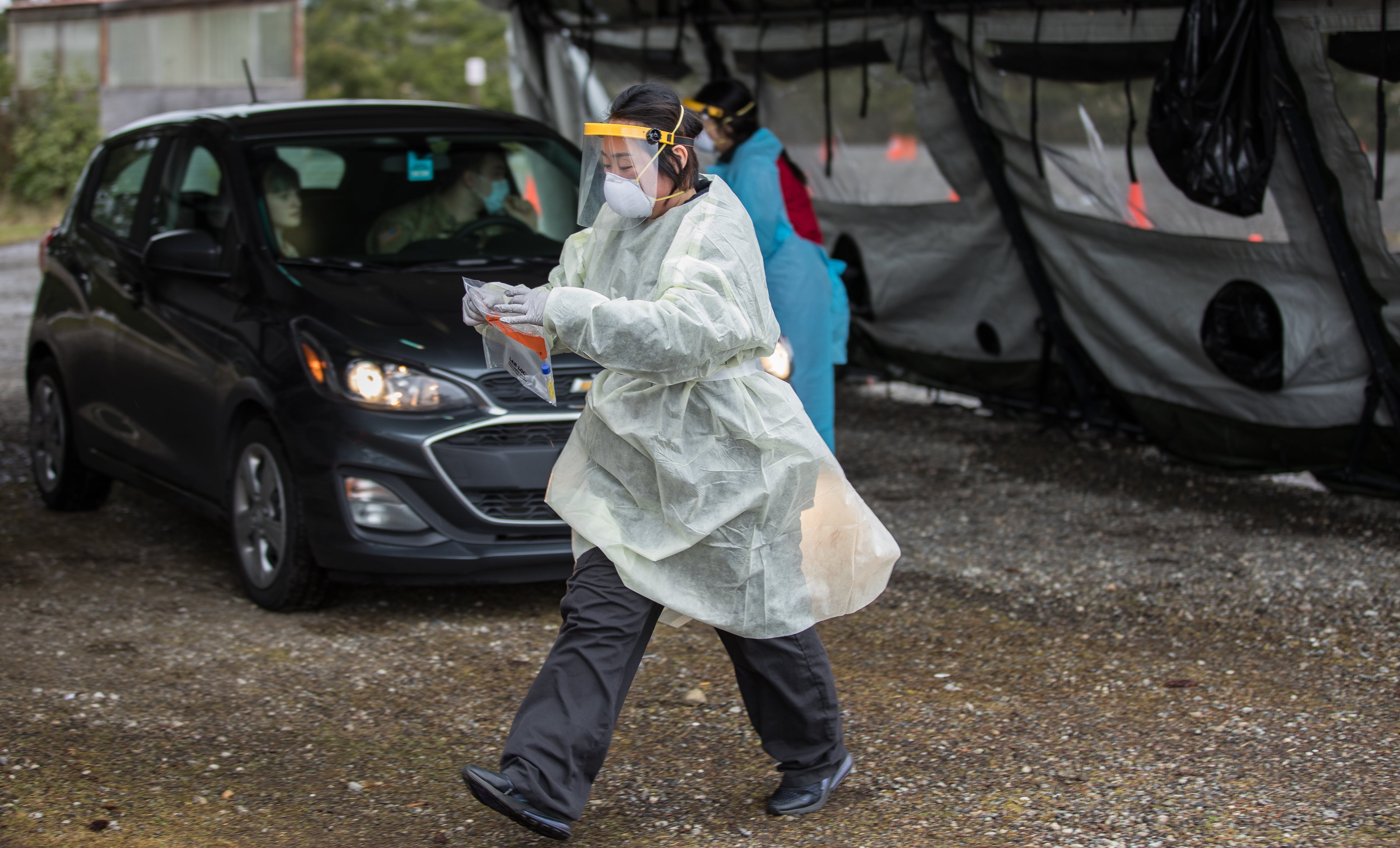The Defense Health Agency, a government organization employing civilian medical staff working on military bases, has paused hiring of some experienced nurses, even as it grapples with shortages of medical staff on posts.
Further, nurses may face a future downgrade in salary if DHA can’t find a way to secure special pay authorities via other means, according to union stewards and current nurses interviewed by Federal Times.
In 2022, the Defense Civilian Personnel Advisory Service issued a decision following a classification appeal submitted previously by Navy nurses who sought to have their positions certified as GS-13s.
As justification, they recalled examples of other federal nurses who were doing similar work for more pay. Seeking parity, they reasoned that their compensation should be commensurate, especially given burnout fueled by steep vacancy rates at some military medical centers.
DCPAS found that those positions should be held at the GS-12 level, and it triggered a desk audit of other nurses who fell into this category. At the time, the result was that 605 nonsupervisory, advanced practice nurses in the 0610 occupational series were subject to a downgrade to a GS-12, according to a fact sheet disseminated by DHA and obtained by Federal Times.
RELATED

However, the agency recently informed employees that it’s suspending any regrades of all impacted GS-13 non-supervisory nurses. But, it has ceased recruiting any new nurses at a GS-13 level. In the meantime, DHA is looking at other hiring and compensation authorities to help minimize the negative impact the ordered pay cut would have had on hiring and retention.
Peter Graves, a DHA spokesperson, said the agency is conducting a series of town halls this month, though most of the nursing workforce was notified of the changes in June.
“DHA made this decision to suspend based upon its plans to pursue application of Title 38 authorities,” reads the fact sheet from May, authored by Alicia English, director of administration and management. “DHA leaders are very concerned the military medical treatment facilities are losing qualified staff to the Department of Veterans Affairs and the private sector in many markets due to the limitations on hiring and pay under the agency’s current Title 5.”
Cathie McQuiston, deputy general counsel for the American Federation of Government Employees, which represents DHA and VA staff, said she questions DHA’s ability to recruit nurses at the lower grade, especially as they may work alongside nurses still at the GS-13 level.
In an interview, McQuiston also said the Defense Department already has Title 38 authority from Congress, so it’s unclear why this wasn’t leveraged earlier.
In a nutshell, Title 38 and Title 5 are two categories of federal employment that set rules around appointments, promotions, qualifications, work schedules and pay. Title 38 is used by the VA, where nurses can benefit from different pay scales and performance-based increases that reflect their skill or the demand. Title 5 is the competitive service and governs those under the General Schedule and Wage Grade pay plans.
According to DHA, use of Title 38 compensation authorities covers roughly two-thirds of military health system workers in 28 occupations.
“It’s unclear what this working group is doing when they already have the authority they say they want,” McQuiston said in an interview.
English’s fact sheet says the agency is “analyzing the risks, impacts to budget, and differences between the competitive and excepted services, as well as engaging with the union, before deciding to implement Title 38.”
RELATED

According to internal documents obtained by Federal Times, if a Title 38 conversion fails, the need to regrade positions will be reassessed. If it is successful, the conversion would be phased in, prioritizing registered nurses and licensed practical nurses first.
Pay isn’t the only issue, however.
One nurse, who was granted anonymity to speak candidly about the situation, said even if Title 38 is fully implemented, it would not address the need to modernize position descriptions of advanced practice nurses. She said that at present, they do not reflect the breadth of education and experience of the nurses holding these titles.
Officials have said there is an ongoing effort to standardize and reduce variation in position descriptions across the agency. In 2022, at the direction of Congress, DHA merged military medical centers from the Army, Navy, and Air Force and took control of 700 facilities, including dental clinics, in the U.S. and overseas.
As a result, nurses from the different services now worked alongside each other under one agency, but positions descriptions for them retained uniquities from their work under the military departments. DHA said it’s working on smoothing out discrepancies.
The nurse told Federal Times that nurses under the current system top out at GS-12s. Some work in the same grade for years without the ability to promote despite gaining experience and skills.
If that remains the case, nurses will take their expertise elsewhere, the nurse said, and without a steady foundation of civilian nurses, especially at bases in remote parts of the country, the availability of care will suffer for the 9.6 million service members, retirees and family members who rely on it.
“Those of us who have elected to work predominantly with service members from all the branches, have dedicated our time and efforts in doing so, and have sacrificed the opportunities for further financial gain outside of the DHA,” said David Hodson, another nurse, to Federal Times. “However, to reduce the GS classification of 0610 from a 13 to a 12 is a slap in the face to our professional integrity.”
Editor’s note: This story was updated on July 17 to clarify what the DCPAS decision determined with regard to the classification appeal.
Molly Weisner is a staff reporter for Federal Times where she covers labor, policy and contracting pertaining to the government workforce. She made previous stops at USA Today and McClatchy as a digital producer, and worked at The New York Times as a copy editor. Molly majored in journalism at the University of North Carolina at Chapel Hill.





